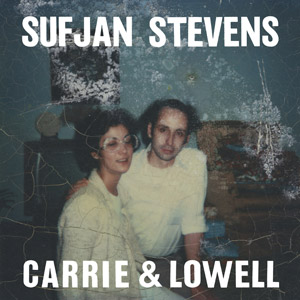Sufjan Stevens’s Carrie & Lowell
New Album Cuts Deep

Sufjan Stevens’s first name means “comes with a sword” and is pronounced “soof-yun,” just so you know. After that, everything is hazier. Critics say that this album is a good step backward from Stevens’s baroque, multilayered The Age of Adz, and a return to simpler emotional work like 2005’s Illinois, but it’s hard to deny the heavy layer of artifice that this album exudes. Despite being a highly personal album about his mother’s schizophrenia and passing, Stevens’s voice on all tracks sounds doubled and wrapped in gauze, as if his breathless admonitions and admissions weren’t true but rather ploys to evoke emotion. Still, the album works because it is brief, delicately worded, and powerfully stitched to the idea of death, which demands some distance. “We’re all gonna die,” say the last lines of “Fourth of July,” a song that glides between ideas of summery impermanence: fireflies, fireworks, and then the loss of his mother. And that’s how the album begins. Stevens’s new work is the kind of record that may not exactly come with a sword but cuts deep enough to keep affecting us.



